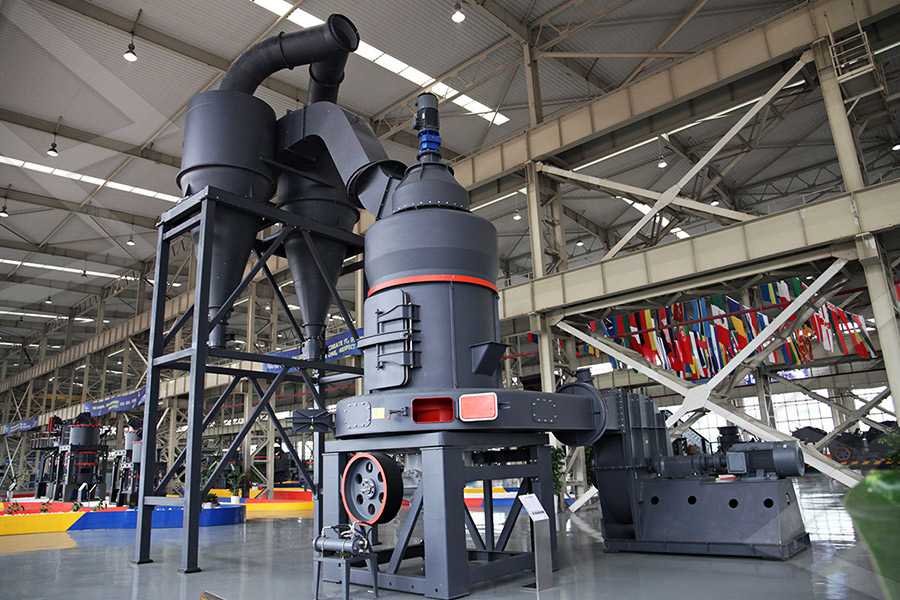细粉加工设备(20-400目)
我公司自主研发的MTW欧版磨、LM立式磨等细粉加工设备,拥有多项国家专利,能够将石灰石、方解石、碳酸钙、重晶石、石膏、膨润土等物料研磨至20-400目,是您在电厂脱硫、煤粉制备、重钙加工等工业制粉领域的得力助手。
超细粉加工设备(400-3250目)
LUM超细立磨、MW环辊微粉磨吸收现代工业磨粉技术,专注于400-3250目范围内超细粉磨加工,细度可调可控,突破超细粉加工产能瓶颈,是超细粉加工领域粉磨装备的良好选择。
粗粉加工设备(0-3MM)
兼具磨粉机和破碎机性能优势,产量高、破碎比大、成品率高,在粗粉加工方面成绩斐然。
chinalingo


ChinaLingo
Chinlingo offers online language lessons with qualified native speaking teachers Located in Xiamen, China, Chinlingo was founded by a group of Chinese language enthusiasts and About us Chinlingo{"title":"HSK Tutorial","showtitle":"0","posttype":"course","taxonomy":"","term":"","postids":"3032,3024,3028,3021,934,931","coursestyle":"recent","featuredstyle Courses Chinlingo从能听能说,到会读会写! Duolingo ABC 是专为 3~8 岁儿童设计的学习应用。 轻松有趣的拼读课,好玩逗趣的小故事,让孩子们边玩边学,掌握读写,还 100% 免费哦! 了解 ABC 详情Duolingo

Duolingo
learn a language with duolingo Get started Duolingo is the world's most popular way to learn a language It's 100% free, fun and sciencebased Practice online on duolingo 2017年11月16日 — Today, Duolingo officially launched its Chinese course for English speakers, now available on iOS, Android, and web Along with Japanese, Chinese has been one of the most requested language Say 你好 (nihao) to Duolingo’s Chinese course!Learn languages by playing a game It's 100% free, fun, and scientifically proven to workDuolingo2024年6月20日 — Study with Quizlet and memorize flashcards containing terms like 上, 中心, 听说 and moreChina lingo Flashcards Quizlet
.jpg)
ChinaLingo Owner ChinaLingo 领英
Owner 工作经历: ChinaLingo 地点: 深圳。在领英 (一个拥有 10 亿会员的职业社区) 查看ChinaLingo 的职业档案。2023年8月8日 — 舞狮,是中国优秀的民间艺术,古时又称为“太平乐”。舞狮有南北之分,南狮又称醒狮。Lion dance is an excellent folk art in China, also known as “Taiping Music” in ancient timesTraditional Chinese Folk Art—Lion Dance 中国民 2016年6月22日 — This might be one of the trickiest comparisons, as 会 (huì), 能 (néng), and 可以 (kěyǐ) are often translated as "can"这或许是最棘手的一组对比之一,因为"会"、"能"和"可以"常常译为"can"。The differences between “会”, “能” and “可以” in 2016年6月22日 — The character 才(cái) is one of those very common parts of Chinese grammar that many students find difficult because it is so common and versatile This article will separate the grammatical uses of 才 into Four uses of “才” in Chinese – Chinlingo
.jpg)
Mandarin grammar construction: 是的 – Chinlingo
2019年7月26日 — The given information was very useful as it was given in a simple wayI used these points in my research on “shi” sentences by adding your reference details2016年6月21日 — The words 终于(zhōngyú) and 最后(zuìhòu) in Chinese can be difficult for beginners to distinguish, because both of them can mean "finally" or "in the end" Remember that there is a lot of overlap between these words: they are not totally separate in终于” vs “最后” in Chinese – Chinlingo2016年6月24日 — The Dragon Headraising Day falls on the second day of the second lunar month, which is a traditional festival for Han nationality and many minorities in most Chinese regions This year, the festival falls on March 10Origin and traditions of Longtaitou – Chinlingo2016年6月21日 — "凤凰男" (fèng huáng nán) is one of the Internet catchwords in China "凤凰" (fèng huáng), or "phoenix" in English, is a mythical longlived bird capable of getting regenerated or reborn cyclicallyChinese slang term: 凤凰男 – Chinlingo

Live Courses – Chinlingo
{"posttype":"course","coursestyle":"random","postids":"625,887,893,904,916,3013 ","featuredstyle":"course4","gridcolumns":"clear3 colmd4"}2016年6月21日 — Mixing up the order of the two syllables in a word is something most learners do This makes the pair 适合 (shì hé) and 合适 (hé shì) annoying, to say the least They mean more or less the same thing, but the former is a verb, while the latter is anHow to use ‘shi he’ and ‘he shi’ in Chinese – Chinlingo2016年6月21日 — [Do you know?] Both "几" and "多少" can be used to inquire about the quantity Is there any difference between them? "几"和"多少"都可以用来询问数量,它们有什么不同呢?[Definitions] "几" (jǐ): used to inquire about an uncertain and small quantityChinlingo Chinese words: 几 VS 多少 – ChinlingoIn the Chinese Lunar Calendar, Sanfu (三伏, sān fú) or dog days refers to the three 10day periods that are predicted to be the hottest days of the year, which are called Toufu (头伏, tóu fú) – the first period, Zhongfu (中 Things you may not know about Sanfu – China’s
.jpg)
Express “never” and “always” with Chinese word “
2016年6月22日 — Although it can also work in the positive, 从来 (cónglái) is usually used when you want to express that you never do something, or that you have never done something In either usages, 从来 (cónglái) may be 2020年6月2日 — Chinese is very easy to learn, Want to know more, check out on our other posts to learn more Such as How to say amounts of money with ”kuai“ WeChat to charge fees for money transfers via WalletChinese Money钱 – Chinlingo2016年6月21日 — The verb + 出来 (chūlái) construction is a common pattern in Chinese grammar It's useful for adding information to verbs There are two main usage patterns for the verb + 出来 constructionHow to use Chinese sentence pattern verb +出来 – Chinlingo2020年6月8日 — Now let’s explain them one by one 牛逼(niúbī) is equal to fucking awesome in English And 牛(niú)literally means cow, in slang, means awesome 逼(bī) in slang means“Pussy” —impolite usage 逼(bī) can be written in “B”What does “牛B” mean in Chinese? – Chinlingo
.jpg)
pricing – Chinlingo
Speak Like a Local Chinese Chinlingo provide 1on1 online lessons with customized learning plans Professional private teacher, flexible schedule and wideranged topics will help you reach your personal goalsThe Chinese structure “verb + 上 (shàng)” can indicate: 1 The direction: 方向 Eg 他跑上楼了 (tā pǎo shàng lóu le)。 He ran upstairsHow to use “verb + 上 (shàng)” pattern – Chinlingo2016年6月21日 — Like "I know", "I think" is one of the very first phrases learned when studying a foreign language In Chinese, there are two phrases with much overlap that can both be translated as "I think" – 我想 and 我觉得我想” vs “我觉得” – Chinlingo2020年5月29日 — Chinese is very easy to learn, Want to know more, check out on our other posts to learn more Such as 5 Chinese Common Saying Children’s games in ancient China 7 interesting Chinese phrases about sportsTraditional sports in China中国有什么传统运动 – Chinlingo

How to explain “闷骚” (mēn sāo) to English speakers –
2016年6月21日 — There is a Chinese buzzword called "闷骚" (mēn sāo) It refers to people who look quiet, cold or even dull outside, but inside they are volatile, charismatic, hot and sexy It may also be used to describe a person's duplicitous personality, but mostly in It is very important in Chinese culture to be able to address everyone by their correct kinship term as a sign of politeness and respect Especially to the older generation, having children or grandchildren who are well Chinese family tree: how to address family 2016年7月4日 — The verb +起来 (qǐlái) construction is a common pattern in Chinese grammar Some Chinese beginners may feel confused, " what ' s the difference between the verb and " verb + 起来 " (qǐlái)?" The Any difference between Verb and Verb + “起来”?Target Group: This is a course for complete beginners Learning Objectives: The aim is to help participants learn some basic knowledge of Mandarin Chinese and practice daily dialoguesThe teaching approach of this course is interactive and mainly focused on building students’ listening and speaking skillsBeginner Chinese(20 classes) Chinlingo

Meet “拨浪鼓” (bō làng gǔ), the traditional toy in China
2017年1月5日 — The rattle drum (拨浪鼓; bō làng gǔ) is one of the oldest and most traditional toys in China It is a small doublesided drum with a handle and a wooden ball hanging from a string attached to each end of the edge to beat the drum When swayed, the balls on both sides will beat the drum, making rattling sounds2016年6月21日 — In Chinese, the most common way to say "I love you" is "我爱你(wǒ ài nǐ)," but there are other ways to express love 在中文里,最常用的表示"我爱你"的说法是"wǒ ài nǐ",不过在标准普通话里,还有许多其他的表达爱意的方法。12 ways to express love in Chinese – Chinlingo2016年6月21日 — 放鸽子 (fàng gēzi) is a common spoken phrase that literally means "to release a dove" The meaning of the word "放(fàng)" in this circumstance means "to release", while "鸽子(gēzi)" refers to a dove, a kind of birdChinese slang term: 放鸽子 – Chinlingo2020年5月28日 — Recommend Course: Intermediate Chinese 1 (20 classes) Intermediate Chinese 2 (20 classes) Advanced Chinese 1(20 classes) Pinyin for zero beginners(10 Classes) 1on1 live Chinese course, learn with Chinlingo Chinese,5 Chinese Common Saying – Chinlingo
.jpg)
Chinlingo Chinese character: 岁 and 年 – Chinlingo
[Do you know?] Both "岁" and "年" mean "year" Is there any difference between them? [Definitions] 岁 (suì): a unit of age 年 (nián): a unit of time, or time required for the earth orbiting the sun, eg Year 1984; also, it means "one of the periods of life", eg "童年" (tónɡ nián or childhood) and "老年" (lǎo nián or old age); it means "New Year" as well, eg "拜 2016年6月21日 — Direction complements are one of the big obstacles in Chinese grammar The most common ones must be 来(lái) and 去(qù) 方向补语称得上是中文语法里的主要障碍之一。其中最常见的就是"来"和"去"。How to use “来” and “去” in Chinese – Chinlingo2016年6月21日 — The phrase "走桃花运 (zǒu táo huā yùn)" literally means "to have peach blossom luck" It refers to "being lucky in love" In most cases, we only say that men will have "桃花运" To get a better understanding of the phrase, we can read this story first:Chinese slang term: 桃花运 – Chinlingo2016年6月22日 — Confucian values, such as "be modest", still run strong in China, so people usually won't say "thank you" when praised for somethingInstead, they will reply modestly with other common words 儒 6 Chinese phrases to express your modesty –

Rules for forming Chinese comparative sentences – Chinlingo
2016年6月21日 — In Chinese, there two kinds of comparative sentences: 汉语中有两种比较句: • A comparison of two or more things that do not appear at the same time in a sentence, but the speaker is aware that both arguments existOnce your Chinese learning reaches an intermediate level, you may find that you have some difficulty with synonymsMost Chinese learners wonder if these synonyms are interchangeable, or wonder which particular word(s) How to use “lìng” and “lìng wài” in Chinese – 2016年6月22日 — Dumplings are the indispensable food for Chinese people on New Year's Day as well as other festivals According to the traditional customs, dumplings should be prepared before 24:00 on New Year's Eve and eaten between 23:00 on New Year's EveA bowl of coin dumplings – ChinlingoDo you know how to say "woof" in Chinese? Onomatopoeia is one of the most fun ways to learn ChineseAnd besides, you have to take a break from grammar and standard vocabulary sometimes, right? So let loose, and learn how to bark, squeak, meow, roar and heehaw instead! Here are 22 Chinese animal sounds to extend your language skills, 22 words for animal sounds in Chinese – Chinlingo

Chinese vocabulary for car parts – Chinlingo
2018年1月26日 — Here is the Chinese vocabulary related to cars Use this vocabulary list to learn the names of car parts 以下是车辆相关的中文词汇,用上这份列表学点车辆零件的中文表达吧。air bag 安全气囊2016年7月24日 — 任何 is a modifier that means "any", "whichever", or "whatsoever" It is also like the English phrases "any and all" or "no matter what" " 任何 " 是一个修饰语,意思是 "any"、"whichever" 或 "whatever",它也类似于英文短语 "any and all" 或 "no matter what"。 How to use ‘任何’ in Chinese – Chinlingo2016年6月21日 — [Do you know?] Both "找" and "寻" mean "look for" Is there any difference between them? 汉字"找"和"寻"都用来表示寻找,它们有什么区别呢? [Definitions] 找 (zhǎo): look for; try to find; want to see; call onChinlingo Chinese character: 找 and 寻 – Chinlingo2016年6月21日 — When to Use 是 (shì)? 什么 情况 下使用“是”? 1 Use 是 (shì) to connect two nouns 使用“是”连接两个名词 是 (shì) is used like the English verb “to be” when you want to connect two nouns together in a sentence to explain what something, or someoneYou really know how to use “是” in Chinese – Chinlingo

How to use “差不多” in Chinese – Chinlingo
2016年6月21日 — 差不多 (chàbùduō), translated literally, means "the difference is not much" Essentially what it means in Chinese is "more or less," and is useful for expressing rough approximationsIt can be used as a predicate or an adverb2023年8月8日 — 舞狮,是中国优秀的民间艺术,古时又称为“太平乐”。舞狮有南北之分,南狮又称醒狮。Lion dance is an excellent folk art in China, also known as “Taiping Music” in ancient timesTraditional Chinese Folk Art—Lion Dance 中国民 2016年6月22日 — This might be one of the trickiest comparisons, as 会 (huì), 能 (néng), and 可以 (kěyǐ) are often translated as "can"这或许是最棘手的一组对比之一,因为"会"、"能"和"可以"常常译为"can"。The differences between “会”, “能” and “可以” in 2016年6月22日 — The character 才(cái) is one of those very common parts of Chinese grammar that many students find difficult because it is so common and versatile This article will separate the grammatical uses of 才 into Four uses of “才” in Chinese – Chinlingo
.jpg)
Mandarin grammar construction: 是的 – Chinlingo
2019年7月26日 — The given information was very useful as it was given in a simple wayI used these points in my research on “shi” sentences by adding your reference details2016年6月21日 — The words 终于(zhōngyú) and 最后(zuìhòu) in Chinese can be difficult for beginners to distinguish, because both of them can mean "finally" or "in the end" Remember that there is a lot of overlap between these words: they are not totally separate in终于” vs “最后” in Chinese – Chinlingo2016年6月24日 — The Dragon Headraising Day falls on the second day of the second lunar month, which is a traditional festival for Han nationality and many minorities in most Chinese regions This year, the festival falls on March 10Origin and traditions of Longtaitou – Chinlingo2016年6月21日 — "凤凰男" (fèng huáng nán) is one of the Internet catchwords in China "凤凰" (fèng huáng), or "phoenix" in English, is a mythical longlived bird capable of getting regenerated or reborn cyclicallyChinese slang term: 凤凰男 – Chinlingo
.jpg)
Live Courses – Chinlingo
{"posttype":"course","coursestyle":"random","postids":"625,887,893,904,916,3013 ","featuredstyle":"course4","gridcolumns":"clear3 colmd4"}2016年6月21日 — Mixing up the order of the two syllables in a word is something most learners do This makes the pair 适合 (shì hé) and 合适 (hé shì) annoying, to say the least They mean more or less the same thing, but the former is a verb, while the latter is anHow to use ‘shi he’ and ‘he shi’ in Chinese – Chinlingo2016年6月21日 — [Do you know?] Both "几" and "多少" can be used to inquire about the quantity Is there any difference between them? "几"和"多少"都可以用来询问数量,它们有什么不同呢?[Definitions] "几" (jǐ): used to inquire about an uncertain and small quantityChinlingo Chinese words: 几 VS 多少 – Chinlingo
江西赣州硫酸钡加工粉磨设备
--石灰石如何粉磨成细粉的
--碳酸钙立方和吨的换算
--电东磨机
--料石深加工设备
--2000目3r雷蒙磨粉机
--花岗闪长岩矿石磨粉机器
--什么是稀土
--矿业公司审批
--萤石矿开采设备
--宝成磨粉设备
--熟料粉磨成套设备
--碾磨机器
--膨润土粉体设备
--xsd2610生石灰石灰石粉碎机图片
--做大理石加工需要多大的场地
--辽宁朝阳市白云石微粉磨操作视频
--江阴混凝土粉碎机
--生蚝壳矿石磨粉机
--时产40吨粗粉磨粉机
--富源悬辊矿石磨粉机
--石英砂石灰石液压原煤立磨机粉煤灰机
--机械设计与制造
--贵州高钙粉成本
--开采生石灰矿 方解石矿需要什么证件
--磨涨机价格
--我国石灰石粉碎机冶炼废渣处理的意义
--水泥厂9月份工作总结
--s10307生料立磨
--铝钒土重钙磨粉机雷蒙机
--










